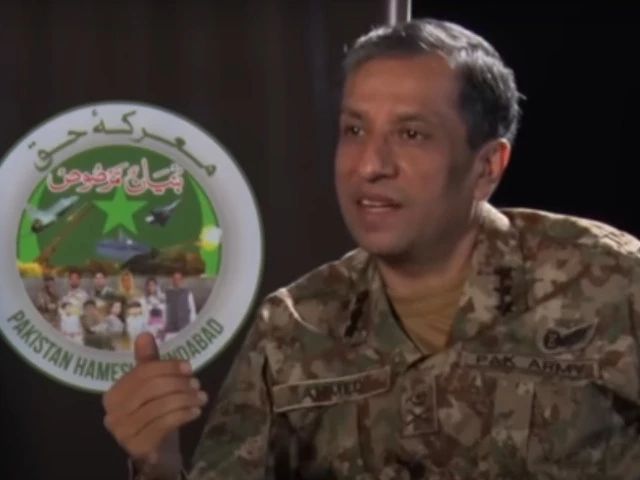Director General of Inter-Services Public Relations (DG ISPR) Lieutenant General Ahmed Sharif Chaudhry said that Pakistan’s military development strategy has always focused on integrating effective platforms and indigenous technologies. He clarified that Pakistan is not engaged in an arms race with India and has never attempted to hide or manipulate data.
“We are ready to acquire all kinds of technologies, whether indigenous, eastern or western,” DG ISPR said in an interview with Bloomberg.
Pakistan is not engaged in an arms race with India, nor is it trying to hide or manipulate data, DG ISPR said.
Read: Military Notes of Indo-Pak Conflict: Inferences and Conclusions
India could not shoot down a single Pakistani aircraft during Operation Marka-E-Haq. DG ISPR’s statement comes after US President Donand Trump confirmed that seven Indian aircraft were shot down during the conflict.
DG ISPR also recognized the effective performance of Chinese-origin platforms and other weapons used by Pakistan Armed Forces during the operation. Blomberg reported that Pakistan’s Chinese-origin J-10c fighter jets shot down several Indian Air Force aircraft, including the Raifale, during the operation.
Earlier in August, Pakistan also announced the addition of the Z-10Me fighter helicopter to its defense. The Pakistani military already has American Borne F-16 fighter jets, as well as a mix of war machines of Chinese origin.
Learn more: The Politics Behind the Indo-Pak War
The four-day Indo-Pak war in May 2025 crossed previous thresholds of geographic scope, used unprecedented systems and produced massive levels of disinformation. Till date, ambiguous and in some cases outright fabricated reports are being propelled by the Indian media.
Pakistan’s calibrated and mature response, combined with effective media manipulation and international diplomacy, has shifted the strategic balance in its favor. The war ended after significant diplomatic engagement by Trump. This conflict proved much more costly for India, with losses estimated at over $1.7 billion compared to Pakistan’s $236 million.
The crisis not only exposed India’s political irresponsibility but also internationalized the Kashmir issue, while Pakistan’s restrained retaliation demonstrated its commitment to regional stability. However, without meaningful dialogue, the risk of future crises remains, requiring continued military preparation and diplomatic engagement to deter aggression.




